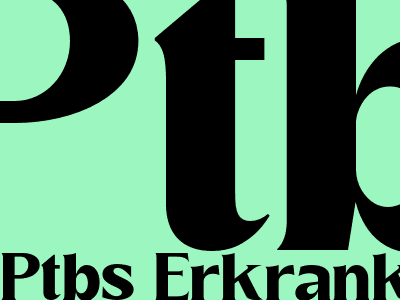
Ptbs Erkrankung
Post-Traumatic Stress Disorder (PTSD): A Comprehensive Guide
Introduction
Post-Traumatic Stress Disorder (PTSD) is a mental health condition that can develop after a person experiences a traumatic event. Trauma can result from various experiences, including but not limited to: *
War and combat *
Natural disasters *
Serious accidents *
Violent crimes *
Sexual assault Symptoms of PTSD
The symptoms of PTSD can vary depending on the individual and the severity of their trauma. Some common PTSD symptoms include: *
Reliving the traumatic event through intrusive memories, nightmares, or flashbacks *
Avoiding anything that reminds them of the trauma *
Feeling numb and detached from others and their surroundings *
Difficulty sleeping or concentrating *
Increased irritability and difficulty controlling anger *
Feeling on edge or hypervigilant about potential danger Causes of PTSD
PTSD is caused by a combination of biological, psychological, and environmental factors. Some risk factors for PTSD include: *
Experiencing a traumatic event *
Having a personal or family history of mental illness *
Being exposed to ongoing stress or adversity *
Lacking social support Treatment for PTSD
PTSD is a treatable condition. Treatment typically involves a combination of therapy, medication, and lifestyle changes. Some common treatment modalities include: *
Cognitive-Behavioral Therapy (CBT): CBT helps individuals identify and change negative thinking patterns and behaviors related to their trauma. *
Eye Movement Desensitization and Reprocessing (EMDR): EMDR helps individuals reduce the emotional distress associated with their traumatic memories. *
Medication: Medications such as antidepressants and anti-anxiety medications can help manage PTSD symptoms. *
Lifestyle Changes: Engaging in self-care practices such as exercise, mindfulness, and getting enough sleep can help improve overall mental well-being. Recovery from PTSD
Recovery from PTSD is a process that takes time and effort. There is no one-size-fits-all approach to recovery, and what works for one person may not work for another. With the right treatment and support, however, most people with PTSD can recover and live full and meaningful lives.
Additional Resources
National Institute of Mental Health: https://www.nimh.nih.gov/health/topics/post-traumatic-stress-disorder-ptsd/index.shtml Substance Abuse and Mental Health Services Administration (SAMHSA): https://www.samhsa.gov/ptsd National Center for PTSD: https://www.ptsd.va.gov/
Comments